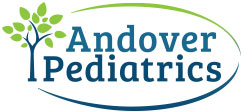Coughs & Colds
A “cold” is a virus in which the main symptoms are runny or stuffy nose, cough, sore throat, and possibly a fever. This is the least serious and most common respiratory illness and is usually viral. Ordinarily the nasal discharge starts clear and watery, gradually thickens, becomes yellow or green for a few days, then gets runny and dries up again. It is very common to have a sore throat for 4-5 days with a common code and the sore throat can precede the onset of nasal symptoms by 1-2 days. Similar symptoms may be caused by a nasal allergy. In that case the discharge will usually remain clear and watery, itching and sneezing will be more prominent, and generalized symptoms such as fever will be absent.
To manage cough & cold symptoms:
- Use a cool mist vaporizer to help sooth irritated nasal passages and keep secretions loose. Elevating the head of the bed may help some children sleep better as well.
- For infants less than 4-5 months old, who have difficulty breathing through the mouth and for whom a cold may therefore interfere with feeding, use a bulb syringe to suction the nose clear. This may be done as often as necessary, but is particularly helpful just before feeding. Instilling some saline nose drops prior to suctioning may make this job easier. DO NOT use over the counter decongestant nasal sprays unless specifically instructed by a physician or nurse practitioner, as they can be dangerous. Saline nasal sprays are OK.
- In general, studies have NOT shown over the counter cough and cold medicines to be very helpful for children. Especially avoid medicines that have several ingredients because they increase the risk of side effects. Use Tylenol or Motrin for a cold only if your child has a fever, sore throat, or muscle aches. Leftover antibiotics should not be given for uncomplicated colds because they have no effect on viruses and may be harmful. Unlike infections caused by bacteria (like a Strep infection of the throat), viral infections cannot be treated with antibiotics. They go away on their own as a result of the body’s own defense systems fighting them off. Common colds usually last 7-10 days.
- Encourage your child to drink plenty of liquids and get plenty of rest. Clear liquids are especially helpful in decreasing congestion. If your baby is still breast feeding or on formula, continue his or her regular feedings. They may need smaller volumes more frequently if their nose is very congested.
- Consider seeking medical attention if the runny nose continues for more than a week, or if other symptoms (pain, worsening cough, fever lasting longer than 3 days) develop.

